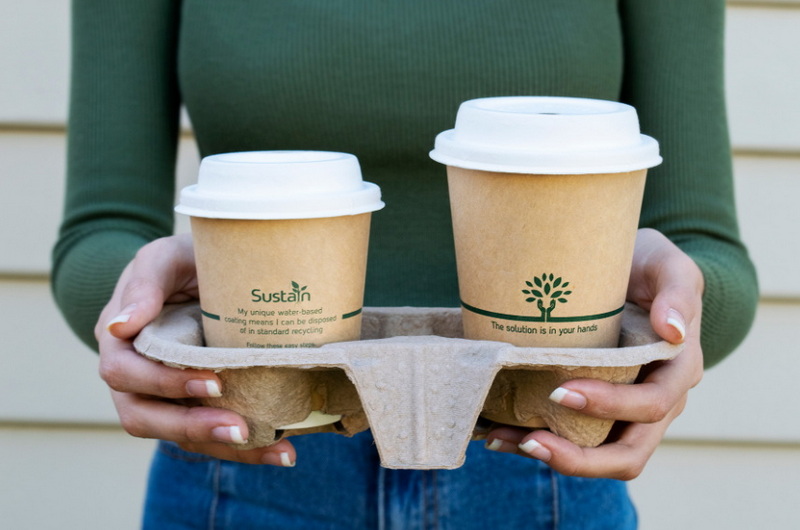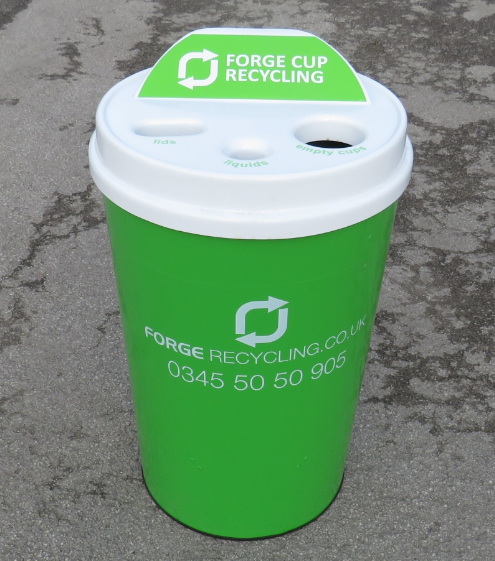
Content Menu
● Introduction to Disposable Coffee Cups
>> Environmental Impact
● Recycling Methods for Disposable Coffee Cups
>> 1. Separation and Collection
>> 2. Specialized Recycling Programs
>> 3. Composting
>> 4. Innovative Recycling Systems
● Challenges in Recycling Disposable Coffee Cups
● Eco-Friendly Alternatives
>> Strategies for Transitioning Away from Disposable Cups
● Government Initiatives and Policies
● The Role of Technology in Recycling
● Public Awareness and Participation
● Conclusion
● FAQ
>> 1. What Types of Plastic Lids Are Recyclable?
>> 2. Can Compostable Coffee Cups Be Recycled?
>> 3. How Do I Identify the Type of Plastic in My Coffee Lid?
>> 4. What Are the Best Practices for Disposing of Disposable Coffee Cups and Lids?
>> 5. What Are Some Eco-Friendly Alternatives to Disposable Coffee Cups?
● Citations:
Disposable coffee cups with lids are a ubiquitous part of modern life, but they pose significant environmental challenges. The combination of paper, plastic, and sometimes bioplastics makes recycling these cups complex. In this article, we will explore the best practices for recycling disposable coffee cups with lids, discuss various recycling methods, and provide tips on reducing waste.

Introduction to Disposable Coffee Cups
Disposable coffee cups are made from a variety of materials, including paperboard, polyethylene, and plastic lids. The paperboard provides structure, while the polyethylene lining ensures the cup is waterproof. The lid, typically made from polypropylene or polystyrene, adds strength and helps retain heat.
Environmental Impact
The environmental impact of disposable coffee cups is substantial. Millions of cups end up in landfills each year, contributing to waste and pollution. The production process also consumes significant resources and energy. In Ireland, for example, 22,000 coffee cups are discarded hourly, totaling 200 million annually, which generates 3,700 tonnes of waste yearly[2]. In the UK, approximately 2.5 billion disposable coffee cups are used annually, with less than 1% being recycled[5].
Recycling Methods for Disposable Coffee Cups
Recycling disposable coffee cups requires separating the different materials. Here are some methods:
1. Separation and Collection
To recycle disposable coffee cups effectively, it's crucial to separate the components:
- Paperboard and Fiber: These can be recycled into new paper products.
- Polyethylene Lining: This plastic layer is more challenging to recycle but can be processed in specialized facilities.
- Plastic Lids: These can often be recycled separately, depending on the type of plastic used.
2. Specialized Recycling Programs
Programs like Simply Cups in Australia and DS Smith's Coffee Cup Drop Box in the UK provide dedicated recycling solutions for coffee cups and lids. These programs collect cups and lids separately, ensuring they are processed correctly. Simply Cups has already collected over 5.7 million cups, diverting them from landfills and upcycling them into sustainable products like benches and reusable cups[3].
3. Composting
Some coffee cups and lids are made from compostable materials. However, these require specific conditions to decompose properly and are often not suitable for home composting.
4. Innovative Recycling Systems
Cities like Aarhus have implemented innovative recycling systems where citizens can deposit reusable cups and receive refunds. This approach encourages the use of reusable cups and reduces waste significantly[6].
Challenges in Recycling Disposable Coffee Cups
Despite efforts to improve recycling, several challenges persist:
- Material Complexity: The combination of materials in coffee cups complicates the recycling process.
- Contamination: Incorrect disposal can contaminate recycling streams, reducing the effectiveness of recycling programs.
- Lack of Infrastructure: Not all regions have access to specialized recycling facilities for coffee cups and lids.
Eco-Friendly Alternatives
To reduce waste, consider these eco-friendly alternatives:
- Reusable Cups and Lids: Switching to reusable cups and lids can significantly reduce disposable waste. Many coffee shops offer discounts for customers who bring their own cups[2].
- Biodegradable Cups: While not always the best option due to composting requirements, biodegradable cups can be a step towards sustainability.
- Frugalpac Cups: These cups, made with a lightly attached plastic lining, can be recycled in regular recycling plants, offering a more practical solution than traditional cups[1].
Strategies for Transitioning Away from Disposable Cups
1. Provide Incentives: Offer discounts or loyalty rewards to customers who bring their own reusable cups.
2. Educate Customers: Raise awareness about the environmental impact of disposable cups and the benefits of reusable alternatives.
3. Collaborate with Local Recycling Initiatives: Partner with local recycling schemes to provide convenient cup recycling options.
4. Engage in Waste Reduction Programs: Implement waste reduction strategies within your business, such as reducing packaging waste and using recyclable or compostable materials.

Government Initiatives and Policies
Governments worldwide are implementing policies to reduce the reliance on disposable takeaway coffee cups. These initiatives include promoting sustainable practices and improving recycling infrastructure. For instance, some cities are introducing deposit systems for reusable cups to encourage their use[8].
The Role of Technology in Recycling
Advancements in recycling technology have made it possible to process materials from disposable coffee cups more efficiently. Specialized equipment can shred cups into small pieces, breaking down the components for further processing. This includes de-inking and pulping the paper portion to create recycled paper products[4].
Public Awareness and Participation
Public awareness and participation are crucial for the success of recycling initiatives. Educating consumers about the environmental impact of disposable cups and the benefits of reusable alternatives can encourage behavioral changes. In Aarhus, for example, citizen participation significantly increased the return rate of reusable cups, ensuring they are reused multiple times[6].
Conclusion
Recycling disposable coffee cups with lids requires a comprehensive approach, including separation, specialized recycling programs, and awareness of material types. By adopting eco-friendly alternatives and supporting recycling initiatives, we can reduce the environmental impact of these ubiquitous items.

FAQ
1. What Types of Plastic Lids Are Recyclable?
Most plastic lids, such as those made from polypropylene (PP) or polystyrene (PS), can be recycled through specialized programs like Simply Cups. However, not all kerbside recycling accepts these lids due to sorting difficulties.
2. Can Compostable Coffee Cups Be Recycled?
Compostable coffee cups are not typically recyclable in the same way as plastic or paper. They require commercial composting facilities to break down properly.
3. How Do I Identify the Type of Plastic in My Coffee Lid?
Check the lid for a small triangular symbol with a number inside. This is the Plastic Identification Code (PIC), which indicates the type of plastic used.
4. What Are the Best Practices for Disposing of Disposable Coffee Cups and Lids?
- Empty the cup.
- Separate the lid and cup.
- Use specialized recycling programs if available.
- Otherwise, dispose of them in general waste to avoid contaminating recycling streams.
5. What Are Some Eco-Friendly Alternatives to Disposable Coffee Cups?
Consider using reusable cups and lids, or opt for biodegradable cups when possible. Dining in or using keep cups can also reduce waste significantly.
Citations:
[1] https://www.bbc.com/news/business-40951041
[2] https://www.rte.ie/lifestyle/living/2024/0321/1439111-heres-why-you-should-ditch-single-use-coffee-cups-in-2024/
[3] http://aim2flourish.com/innovations/upcycling-of-disposable-non-recyclable-coffee-cups-sustainability-in-the-coffee-industry
[4] https://www.lhsc.on.ca/about-lhsc/the-coffee-cup-recycling-journey
[5] https://nationwidewasteservices.co.uk/the-environmental-impact-of-disposable-coffee-cups-in-the-uk/
[6] https://noticiasambientales.com/sustainability/aarhus-implemented-a-revolutionary-coffee-cup-recycling-system/
[7] https://www.commercialwastequotes.co.uk/services/coffee-cup-recycling/
[8] https://mtpak.coffee/2025/01/disposable-takeaway-coffee-cups-waste/
[9] https://mtpak.coffee/2022/12/takeaway-coffee-cup-recycling-programmes/
[10] https://mtpak.coffee/2024/02/disposable-coffee-cups-recycling-process/
[11] https://www.inoe.ro/?i=311250823
[12] https://jamescropper.com/coffee-cup-recycling/
[13] https://bioresources.cnr.ncsu.edu/resources/the-future-of-single-use-paper-coffee-cups-current-progress-and-outlook/
[14] https://your.eastsussex.gov.uk/2025/03/18/disposable-coffee-cup-waste-uncovering-the-hidden-cost/
[15] https://www.linkedin.com/pulse/eco-friendly-sips-creative-ways-recycle-reuse-coffee-cups-kulture
[16] https://mtpak.coffee/2025/02/recyclable-to-go-cups-with-lids/
[17] https://mtpak.coffee/2024/07/disposable-takeaway-coffee-cups-woke-consumer/
[18] https://closedloop.com.au/our-initiatives/simply-cups/
[19] https://www.biffa.co.uk/biffa-insights/disposable-coffee-cups-are-complicated
[20] https://www.breadkitchen.com.tw/imgen452/bring-your-own-cup-day-2025

















